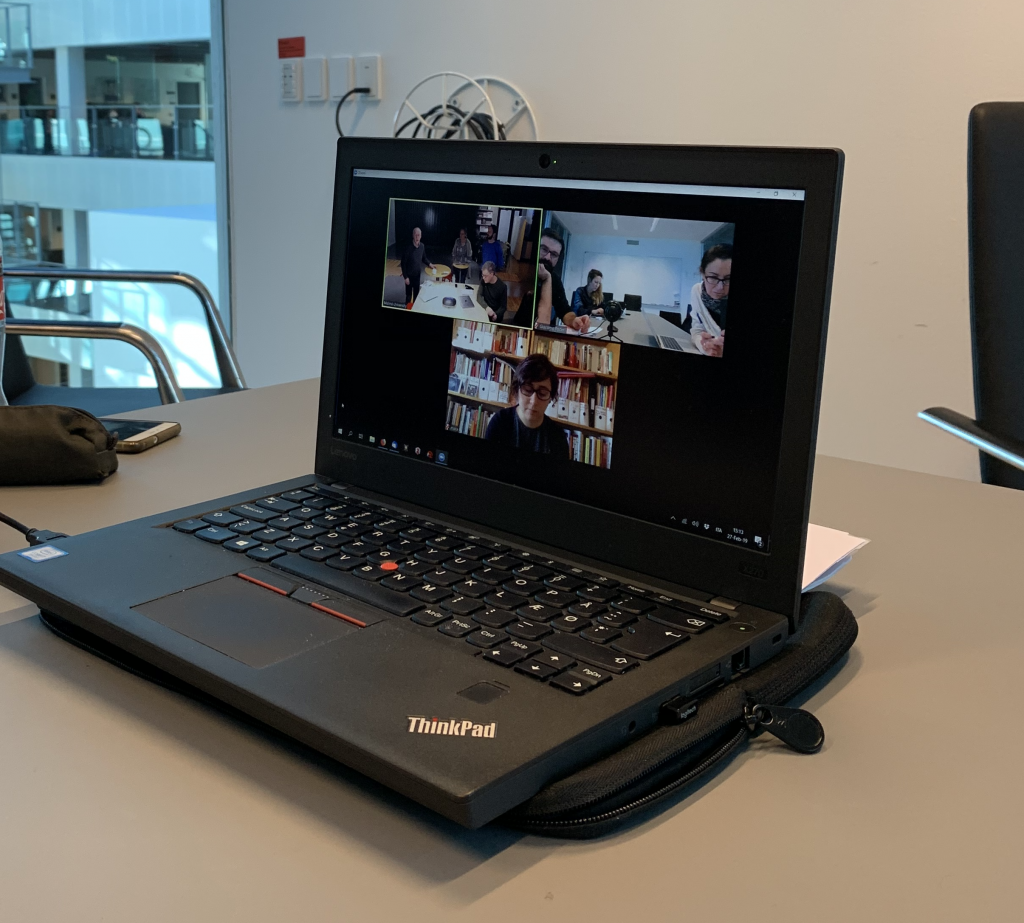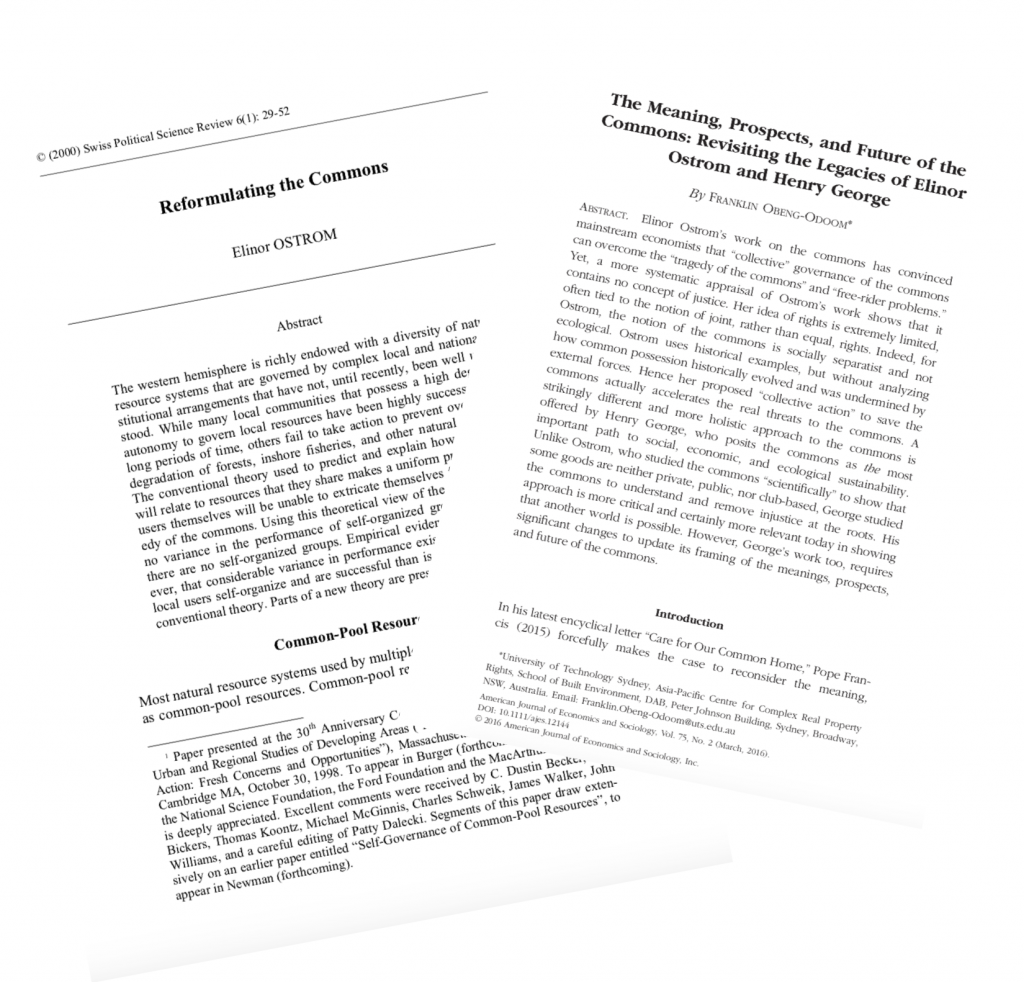We had the pleasure to co-host, together with Dr Peter Parker and other colleagues from the Department of Urban Studies at Malmö University, Dr Mara Ferreri from the Institute of Government and Public Policy (IGOP) at the Autonomous University of Barcelona. The session successfully took place online, bringing together participants in three different locations.

The readings chosen for the session were two texts by Mara, which we discussed in the following order:
- Ferreri, M. 2016. ‘Where’s the trick?’: Practices of commoning across a reclaimed shop front. In: Kirwan, S., Dawney, L. & Brigstocke, J. Space, Power and the Commons. The struggle for alternative futures. Routledge. (available here)
- Ferreri, M. 2017. Els comuns com un verb, Nous Horitzons, 215, pp. 40 – 46. (Commons as a verb – English translation from Catalan) (available here)
In Ferreri (2016), Mara describes practices of commoning encountered in an ‘freeshop’ / open meeting and exchange space set up by the Off Market Collective in a squatted retail space in North London. Through this example, she highlights the possibility for “commoning a squatted space beyond the boundaries of intentional squatting and activist communities”. The Off Market Collective is seen as an urban commons, with both potential and limitations. The open ‘shop’ allowed for experimentation around the sharing of resources, time and space inside a surrounding landscape of commodified consumption. The existence of different groups at stake, such as the core initiators, the volunteers who later joined, and the visitors who were often coming from a vulnerable social position, challenged the radical openness of the space and brought forward tensions between the more radical initial drive for the space and the need to acknowledge and make space for those less engaged, and how to sustain relationship between these actors.
In Ferreri (2017), the commons are explored not as things (resources), but as a verb: commoning (see also Linebaugh, 2008). Based on the reading, we discussed the aspect of language as related to the commons was discussed (common goods) as well as the notion of commons versus that of public. Activities of commoning can be performed on private land, creating a layer (or more) of use by the commons, where as other layers might remain in use by the private owner. However, we should also be cautious in our terminology: maybe personal rather than private? Personal space still implies individuality but allows for other types of configurations. Can we think about rights of use through different configurations of collectivity? Indeed, one of the core argument that emerged from this part of the discussion is that we (scholars and practitioners alike) might be in need of a commoning of language – to talk about the commons – much more than we realize. This became particularly evident when we raised some comparisons among the different ways of institutioning land property and land use rights in some European countries on one hand, and to conceive and talk about them in different European languages (e.g. English, Swedish, German terminologies for shared land).
When it comes to the relationship to the public sector, the commons in the Off Market case was stemming from a more adversarial stance towards the state, whereas there are other examples (e.g. Cleaning day in Finland), where collaboration with the state is sought, even in the reclaim of public space for the commons. In connection to this part of the discussion we also raised the challenging point of mediating between the collective dimension of commons and the individual ones. On the one hand, looking at the collective subjectivities acting as political actors in the struggle to reclaim spaces, rights, sustainable ways of living, is a crucial aspect, particularly when the need to mediate and interact at institutional levels emerge. On the other hand, we shall not lose sight of the diversity of individual subjects who engage with commoning coming from different backgrounds, with different needs and expectations with regards to the commons themselves.
To this regard a relevant remark was made to highlight the fact that while in the area of urban commons studies the focus on collective subjectivities and their relationships with institutions is particularly marked, the broader discourse on the commons also includes specific perspectives that privilege issues such as the relational dimension of commoning, their physical realm of possibilities, the mental dispositions of actors involved, as well as their social contexts.
A few useful references were mentioned during the discussion about the diversity of commoning practices in the urban context:
Huron, A. (2018). Carving Out the Commons: Tenant Organizing and Housing Cooperatives in Washington. University of Minnesota Press.
Starecheski, A. (2016). Ours to Lose: When Squatters Became Homeowners in New York City. University of Chicago Press.
Cited references
Linebaugh, P. (2008) The Magna Carta Manifesto: liberties and commons for all. Berkeley and Los Angeles, University of California Press.
